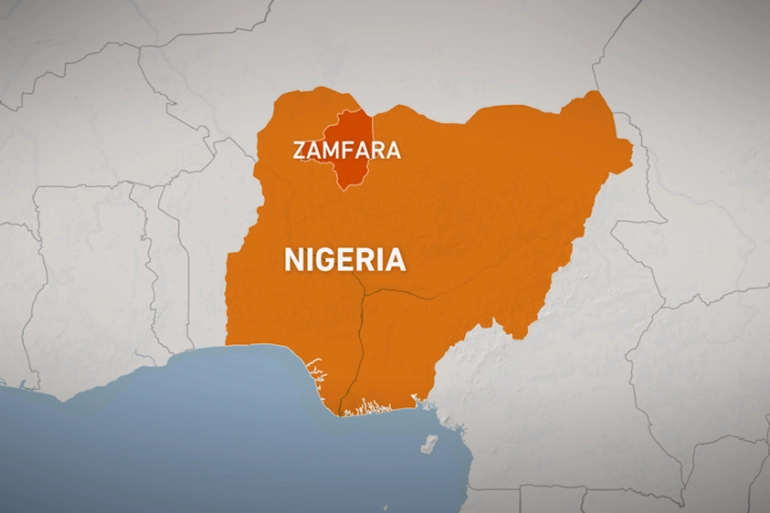Intense gunfire from bandits caused a Nigerian fighter jet to crash in northwestern Zamfara state, but the pilot survived by ejecting from the aircraft.
Nigeria’s air force said on Monday the crash occurred on Sunday as the Alpha jet, a light attack aircraft, was returning to base from a mission on the Zamfara-Kaduna border.
The jet “came under intense enemy fire which led to its crash”, an air force statement said, but pilot Abayomi Dairo successfully ejected.
“Luckily, the gallant pilot … successfully ejected from the aircraft,” air force spokesman Edward Gabkwet said.
“Using his survival instincts, the pilot, who came under intense ground fire from the bandits, was able to evade them and sought refuge in nearby settlements awaiting sunset.”
The pilot found his way to an army base “where he was finally rescued”.
Fake claim of responsibility
A video from the armed group Boko Haram taking responsibility for the attack circulated online, but it turned out to be fake as it was recorded in April.
Boko Haram and its breakaway faction, the Islamic State West Africa Province (ISWAP), have been carrying out attacks in northwestern Nigeria for years.
But there are also other criminal groups on the move in the area, described by the government as “bandits” who specialise in extorting ransom through the mass abduction of schoolchildren.
According to the United Nations Refugee Agency, the armed groups have forced nearly 2.4 million people in Nigeria and neighbouring countries to flee.
The government is increasingly turning to the air force to counter banditry. The air force said over the past two weeks, flights daily and nightly over Zamfara, Kaduna and Katsina states had “neutralised” hundreds of bandits.
It is the first time that armed groups active in the region have shot down a military jet.
In May, 11 officers, including the top-ranking army commander Lieutenant-General Ibrahim Attahiru, were killed when their plane crashed in bad weather in nearby Kaduna state.
President Muhammadu Buhari, a former army general first elected in 2015, has been under increasing pressure from allies and critics alike over his government’s handling of mounting security problems in Africa’s most populous country.

